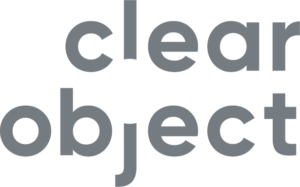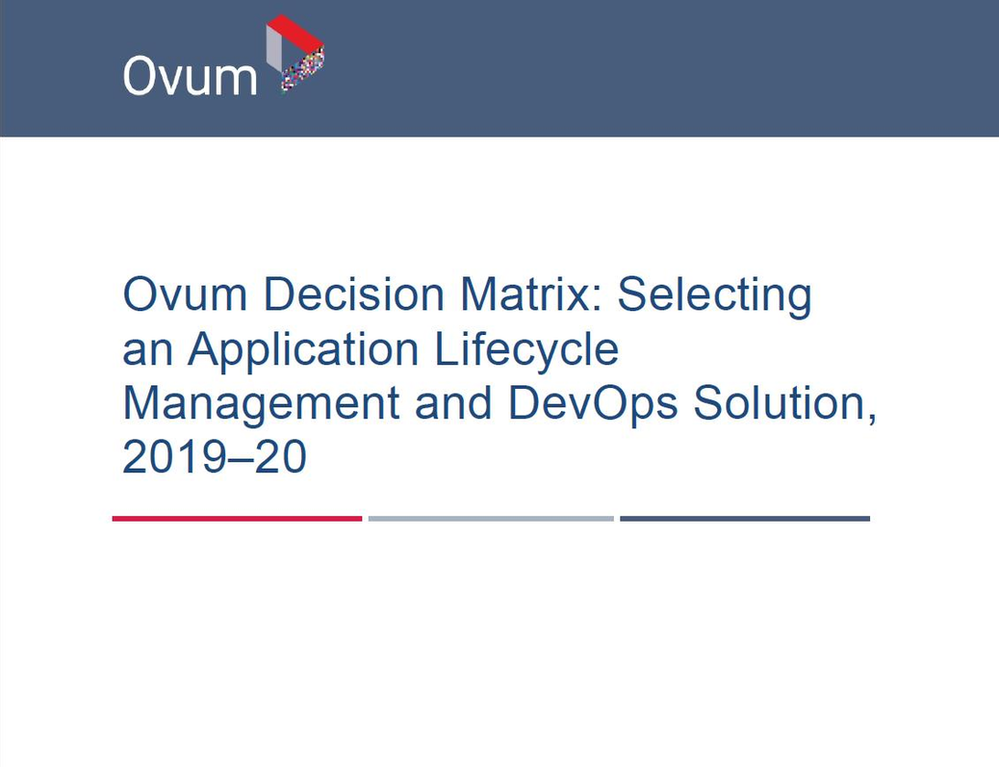For IBM and its flagship solution for application lifecycle management (ALM), the news is as good as it gets. In Ovum’s 2019–2020 decision matrix for ALM and DevOps solutions, the analyst firm has rated the IBM Engineering Lifecycle Management product — IBM ELM for short — as a market leader.
(Ovum Decision Matrix: Selecting an Application Lifecycle Management and DevOps Solution, 2019–2020, Michael Azoff, Ovum Distinguished Analyst, Software Infrastructure. You can download the full 20-page report from IBM’s website.)
The Ovum leader rating is important for multiple reasons. Foremost is the transitional nature of ALM and DevOps right now and whether the two elements should be bridged more closely for app development and engineering. The users who determine this will naturally be software engineering groups and product engineering groups along with product managers, team leaders, et al. But while integrating management tools with software development tools has long been a common practice, the dynamic is becoming harder.
ALM tools and software development tools… going in different directions
With open source software (OSS) increasingly influencing developer tool suites, it’s much easier and faster to adapt tools to programming approaches that constantly change. On the management end, however, tools must be more stable, durable, and cost-effective. That’s because, compared to developer tool suites, tools for ALM are far more important assets in a business’s efforts to develop new products and services and get them to market quickly. In the truest sense, management tools are mission critical.
AI, machine learning, and convergence
The future of ALM itself is another factor in aligning ALM and DevOps more closely, especially as programming styles such as cloud-native computing continue to evolve for product and app development. Throw in the imminent impact of technologies like AI and machine learning for development as well as production, and it’s all the greater reason for management tool stability as technologies like these are adopted.
Making the case for machine learning, one major benefit of integrating ALM and DevOps would be to generate larger volumes of data for analytics across the tool lifecycle spectrum. Machine learning tools would enable businesses and their development teams to 1) mine far more data, and 2) perform analytics at a deeper, more intelligent level to get insights into software quality and team velocity. Teams could also use ML to augment human work for data collection, analytics and other development-related purposes
Take machine learning a step further, and the data generated in a combined ALM/DevOps environment could be used in conjunction with ML for advanced automation and predictive analytics to gauge things like project progress and quality control.
While the idea of using machine learning in a converged ALM/DevOps equation is still being fleshed out, there’s little reason to think the marriage can’t work. In fact, companies like ClearObject are positioned to at least explore how ALM and DevOps can benefit from AI and machine learning. And like virtually any solution involving technology, it’s just a matter of time until it happens.
At this point, as Ovum notes, the ALM market is already benefiting from the convergence of enterprise IT and engineering IT, which has enabled DevOps and cloud-native computing technologies to make an initial mark in advanced engineering manufacturing. We have to think other similar inroads are also now being made.
Ovum’s ALM leader recommendation
This from Ovum’s decision matrix assessment on IBM ELM: “IBM plays well across the enterprise IT and engineering industries, and its investment in DevOps has moved it into a leading position in DevOps tooling.” Ovum also recognizes how IBM can fulfill segments in their ALM and DevOps scope, “notably application security, from its wider portfolio of products.”
We’ve summarized some of Ovum’s other assessments here:
Strengths
- Including advanced engineered products and meeting the needs of Agile and DevOps teams in enterprise IT, IBM ELM has strengths across the range of ALM use cases.
- IBM ELM has the features needed to support in-depth variant management and multiple configurations across product engineering requirements, tests, plans, and code, which also enables reuse of assets.
- Supporting compliance is another strong engineering feature of IBM ELM, for example, with link validation. (IBM itself adds that ELM is more than ALM with compliance capabilities: ELM’s core elements and proof points for compliance include Requirements Quality Assistant (RQA) on OpenShift; ELM Cloud Pak (beta), modernization (UI refresh), cybersecurity compliance, and holistic/enterprise views across the system(s), under design.)
- With the DOORS Next edition, IBM builds on what was already a leading requirements management solution in various engineering industries.
- With a clear understanding of the benefits of a converged ALM/DevOps deployment, IBM’s solutions integrate to share data and provide a complete end-to-end lifecycle view.
- When integrated with IBM ELM, UrbanCode is pushing the capabilities of DevOps solutions with value-stream mapping and analysis to discover delivery bottlenecks and help identify causes.

IBM ELM’s Jazz Reporting Service
Ovum didn’t cite IBM ELM’s modeling capabilities, but IBM emphasizes such capabilities also make ELM more than ALM. Core elements and proof points in this case include global collaboration, a Test Quality Assistant (AI service), end-to-end reporting, Slipstream (>Beta), deploy anywhere – simplified deployment, facilitating test management (change sets), A&D compliance (DO178 b/c) (auto), and model-based systems engineering (MBSE) and AGILE.
Weaknesses
IBM ELM has no technical weaknesses, Ovum says. Its weaknesses are instead “in market execution.” In addition to current vertical solution templates for banking, healthcare, and manufacturing engineering, Ovum believes IBM should expand ELM’s positioning into insurance and investment services, life sciences/pharma, telecoms, and other industries that have stringent compliance requirements. Ovum additionally notes the ELM solution’s wide range of products can be confusing for new users.
IBM ELM Managed Services by ClearObject
Glaring plug here, but ClearObject offers managed services to administer your IBM ELM environment for you — no matter the industry your enterprise is in. With IBM having provided a complete integration layer, the ELM services we manage provide integration between core engineering functions spanning Requirements, Test, Workflow Management, and Systems Design (MBSE). This way, software engineering and product engineering groups get a quality requirements management configuration and solid architecture managed across the lifecycle of enterprise scale. In turn, your group limits risk, controls costs, and is able to drive innovation full-time instead of spending it to maintain tools.
So to recap, IBM ELM is a leader in the ALM space not just because Ovum rated it as such. It’s a leader because of new core elements that include ELM external validation, ASPICE (auto – process, templates and point of view), RQA into DOORS and DOORS re-platforming, comparison analysis, test management clustering, modernization (UI improvements), MBSE, ISO26262 (auto), RQA client success stories, and compliance and modeling capabilities that make ELM much more than ALM.
When it comes to “insightful engineering at enterprise scale” as IBM says, ELM is a leader because it’s the only solution that can provide needed insights into product engineering data and processes when developing complex systems and software.
Contact us
ClearObject is both an IBM Gold Business Partner and the sole managed service provider for IBM SaaS globally. With our IBM ELM Managed Services offering, we’re able to bring knowledge and responsiveness together in the form of the IBM development process and IBM Support. The added advantage you get is working with a long-standing IBM partner — a single trusted source to administer your entire environment for engineering product development.
https://www.clearobject.combm-elm
#alm #appdevelopment #ibmelm #softwaredevelopmenttools #softwareengineering #productengineering #managedservices

